- Home
- Jade C. Jamison
Wilder (Savage #2)
Wilder (Savage #2) Read online
Wilder
(Savage #2)
Jade C. Jamison
Copyright 2015, 2020 by Jade C. Jamison
Cover image © Jade C. Jamison; silhouette image © STYLEPICS/depositphotos
Cover design Mr. Jamison
Portions of this novel were previously published in 2015 as the book Savage.
All rights reserved.
The characters and events portrayed in this book are fictitious or are used fictitiously. Any similarity to real persons, living or dead, is purely coincidental and not intended by the author. Characters and names of real persons who appear in the book are used fictitiously.
Chapter One
As Kevin and I approached the house in the distance, something felt terribly wrong. I didn’t know why, but it felt quiet. Dead.
But then I spotted footprints in the snow. And they were fresh, definitely put there since the last windstorm that had made older ones disappear. That should have made me feel better, evidence of movement, of life, and recent life, no less, but instead it just made the dread sink deeper, like a dead body thrown in a river with a concrete block secured to it.
Kevin looked at me, trying to tell me something with his eyes. I understood one thing—his alarm bells were going off, too. I started to take another tentative step forward, clutching my shovel tightly when I felt his hand clamp down on my shoulder. I turned toward him, ready to say something, but his eyes were hard, and he lifted his hand almost to my face and jabbed his finger in the air, pointing at something. I moved my head so I could follow his finger and then I saw what he wanted me to see: three infected who were apparently immune to the cold, because they weren’t wearing coats. One was even without shoes. Two women, one man, and I couldn’t tell what they were doing.
It was then that I noticed the large window near the front door was broken, the drapes hanging outside, and thin dark red trails down the outer wall of the house, long since dried, hinted at why.
They hadn’t noticed us.
When I looked back at Kevin, he tilted his head back, indicating that we should turn around and go the way we came to try to avoid detection. He didn’t need to tell me twice. Already, I could feel the danger-response chemicals flooding my veins, ramping me up and making me ready for confrontation. Well, that or stopping dead in my tracks like last time.
This time, though, I felt a readiness, a preparedness, a willingness to do whatever it was I had to do to survive. I didn’t want to have to rely on anyone, let alone a man, to ensure my survival. I was willing to do what it took.
We started heading back down the drive, but we both kept turning our heads to look. It wasn’t more than a few seconds later that I heard Kevin say under his breath, “Fuck.”
I turned to see why he said that and my brain echoed his sentiment. What appeared to have once been a tall teenage boy, now infected, was running toward us like a sprinter at the front of a dash. And that was what he looked like, because the two people behind him—biters who looked like they had at one time been his parents—weren’t lagging by much.
It didn’t look like we’d be able to outrun them or even to hide, because they were determined and fast and—unlike the two of us—appeared to be completely undeterred by the snow.
To his credit, Kevin didn’t say what he was thinking, but I could see the unspoken question in his eyes. He wanted to know that I was ready, that I could do it, that I wouldn’t leave it all on him, thereby endangering us because I couldn’t pull my weight. Oh, no way was I going to make him do it alone or let him even try. We were outnumbered as it was.
I gave him a slight nod, but I don’t know that it registered.
They were moving quickly toward us, but the closer they got, the more they seemed to slow down. The adrenaline and other chemicals swirling through my veins provided a focus so intense that I was able to transform into the fighter Kevin needed me to be. I sucked in a sharp breath and gripped the shovel, then—at the last second—poised it as though it were a baseball bat, and as the shorter, older male zeroed in on me, I swung with all my might, aiming for his head and neck. It did no damage save to knock him down. I thought, were he human and alive, it would have knocked him silly, but it simply rendered him motionless for a moment…long enough for me to contend with the woman, because Kevin’s hands were full with the tall biter.
And was he biting. He was gnashing at Kevin, all while my partner was stabbing him in the neck and chest with the tire iron. I swung the shovel at the female, trying to knock her down as well or even to cause more damage, and she fell into the younger one that Kevin was dealing with. The infected young man turned on her and bit at her cheek, but I couldn’t look anymore because the one I’d knocked down was starting to get back up. I stepped on his chest and he grabbed my foot, causing me to feel a little wobbly, so I raised my shovel and brought it down swiftly, without thought, and slammed it hard into his neck.
Immediately, I felt him let go of my ankle which, again, caused me to lose some footing. I brought my boot down once more and felt steadier, and then I pulled the shovel up. The infected man’s blood was spraying over the snow and his chest, but he was still moving. It was more than twitching, and for safety’s sake, I wanted to bring the shovel down again, but I knew Kevin might need my help. By the time I turned around, though, I saw that both the infected he’d been dealing with were on the ground, and Kevin was pulling the tire iron out of the woman’s right eye. I took that as my cue to finish the one I’d been dealing with so, without hesitation, I lifted the shovel and slammed it back down, severing his head from his body.
As though I were watching a movie, I stood there, staring at the blood that drained from his head, and—somewhere in the back of my mind—I wondered why it was so red. I’d always imagined the undead as having blood that wasn’t quite human-looking anymore…and then I had to remind myself that those were movies, not real life.
I felt like I was halfway in shock, like none of it was real—not the blood or the bodies…or the fact that I’d killed, and, for some reason, it didn’t matter to me that these people were already dead. It hadn’t felt that way. They had seemed very much alive. Yes, it was purely in defense, but the gravity of it all hit me and I sucked in a deep breath as though I’d just been pulled up from the bottom of a lake.
Air had never tasted so sweet.
I could hear Kevin talking to me but my eyes took in the carnage once more and then I felt my body begin to shake, my lower lip starting to quiver, and I could feel a sharp sting in my nose. When Kevin placed his hands on my shoulders, forcing me to stop looking at the bodies on the ground, my eyes met his and that was when I lost it.
A loud sob that started in my throat opened my mouth to be let out as my eyes flooded with tears. I didn’t know if I was crying because it hit me that these people who had been alive less than a month ago were the unfortunate victims of an undiscriminating virus that didn’t care whose lives it took or if it was because I’d just done something I never thought I’d have to do.
There was one other possibility, too horrifying to acknowledge in the conscious part of my brain, but that didn’t mean I wasn’t aware of it. I wondered if any of my loved ones had turned like these people and, if they had, if someone was having to do what I just did.
All those thoughts were in my head, whether buried or at the forefront, as the tears began to stream down my cheeks. I hardly registered when Kevin pulled me into his chest and held me tightly as I sobbed, letting it all go.
I didn’t know if it was a release of guilt or fear or a combination of all the emotions I’d been feeling and was trying to work through now, but I felt them all as they began cycling in my head. The tears, though—they somehow helped me turn the internal words off, one a
t a time.
My arms were wound around this man who had become my partner in this strange new world, and I at last, in some weird way, was beginning to feel a little peace.
Chapter Two
Once my crying jag was over, I marveled at the man holding me. It wasn’t too long ago that he had said he never knew what to do when someone was crying. So I swiped at my face and nose with my hand, realizing his coat had absorbed a lot of the teary evidence, and looked up at him. “You did just fine.”
He started laughing. “So did you.”
Then I laughed hard. Between that and the tears, I was beginning to feel like a whole new woman. “No, I didn’t mean this,” I said, waving my hand toward my back, indicating the fully dead bodies in the snow behind me. My voice was softer when I said, “With me crying. You said you never knew what to do when someone started crying.”
“Oh.” Kevin was a quiet man, speaking less now than he had when he was younger, but I believed I had rendered him mute.
“What you did right there was perfect.”
He shrugged and I could tell then that he was uncomfortable. Fine if he’d done the perfect thing, but I didn’t need to make a huge scene out of it.
So I wouldn’t. I felt more moisture in my nose and swiped at it with the back of my hand again. “God. What I wouldn’t give for a Kleenex.”
Kevin raised an eyebrow and then let out a long sigh. “It seems a little disrespectful, but I don’t think they’ll need theirs anymore.”
I turned partially toward the bodies, as though I needed to ask their permission to use a tissue. Then I looked up at their house with its rustic charm, marred by the broken window, the one thing that seemed out of place. I could see pieces of glass on the wooden porch, and it filled me with an overwhelming melancholy that these people would never be able to sit there again, to watch the view of the forest and the other side of the valley from there again, to receive visitors there once more. Their time on this porch, on this earth was over, and I was partly responsible.
I knew, though, that I had to stop blaming myself. Their lives had been ended by the virus that had claimed them, an illness that, like all others, didn’t discriminate. And then I considered myself lucky. I didn’t know why I, unlike hundreds—perhaps thousands—of others, hadn’t contracted it.
And that reminded me that life is precious and to be appreciated, and once more I felt the sting of imminent tears in my nose as I curled up my lips in resistance and I nodded at Kevin, unable to speak. I swallowed and he nodded, as though he knew what I was thinking, and we took our first steps toward the porch.
He must have known that I needed more comfort, because he wrapped his arm around my shoulders as we walked the rest of the way up to the house.
Unlike in my youth, I reciprocated, putting my arm around him, too. It felt right.
* * *
In spite of the fact that the picture window at the front of the house would have provided access inside, we tried the front door first and it opened with ease. I felt like I didn’t belong, like I was somewhere I shouldn’t be, and so I didn’t want to stay inside for long. I just wanted to find tissue and get out.
Kevin must have felt the same way, but I sensed that he also wanted to make sure there were no other infected people inside, because he stuck close to me but walked as quietly as possible while keeping his eyes constantly scanning.
There was a bathroom just off the living room, and I walked in there. I knew there would be toilet tissue, if nothing else, and as soon as I spied the roll next to the toilet, I pulled on it, producing several squares, before blowing my nose.
Even though it was no longer dripping, it was now stuffy, just like it always was after a good cry. That made me realize that I hadn’t had a long teary session like that since I didn’t know when—aside from Aunt Lou’s death, I couldn’t remember the last time. It had been long ago when I discovered that tears didn’t do shit—they didn’t solve problems. They didn’t pay the bills or feed the kids. They didn’t even make me feel better, so I stopped letting myself cry. Crying wasn’t productive, so why waste my time with it?
It had probably been the first of many moves I’d made that had contributed to the numbness.
Today, however, it had proven to be healing and I felt like somehow it had helped me bond with the man who was my partner out here. Judging by how closely he was following me, I gathered he was feeling the same way.
He stood just inside the doorway of the bathroom, and when I threw the used toilet paper into the trashcan, I looked at him, wanting to signal to him that I was ready to leave. That was when I saw him grin and tap on a box of facial tissue. I shrugged. “Only wimps use that stuff.”
He snickered. “Oh. Okay. Then I guess I won’t suggest to you that you take a few with you for the walk back.”
“What? You think I’m going to burst into tears again?”
Now he grew serious. “No, but the cold air sometimes makes my nose drip. Thought you might have the same problem.”
“I guess a couple couldn’t hurt.”
I could tell he was mulling something over. “Maybe we should take some toilet paper with us.”
“But that’s…stealing.”
“They’re dead, Nina. I promise they won’t care if you take it.”
“Or maybe they will. First the bitch kills me, then she steals my asswipe.”
Kevin started laughing again, heartier and more carefree-sounding than I’d heard from him since our reacquaintance. “Okay, okay. We’ll leave it.”
“No. You’re right. I’m just…I guess I’m still emotional.”
He shrugged. “That’s okay.” He took a deep breath. “You know, instead of taking toilet paper, maybe we should see if they have a vehicle we can borrow.”
Those words made me lose any remorse I might have felt about taking toilet tissue from dead people who would never need it again. Yes, I still felt heavy guilt over what I’d had to do, but the idea of a vehicle gave me hope. Maybe I could get home; maybe I could then find out if my children were okay.
For all I knew, they were at our house, having arrived for Thanksgiving and were worried about me. Maybe they’d contacted the authorities, put out a missing person’s report.
That didn’t seem likely, though. While the cops in our town were no Perry Masons, it wouldn’t have taken much to at least listen to the message on my answering machine or even check the caller ID and then follow up by sending someone to Aunt Lou’s house, even if to simply eliminate the obvious.
No, my kids weren’t home or—if they were—things were no better there than they were here. And, for some reason, that scared the shit out of me even more. I had to get back.
So the thought of borrowing these folks’ car didn’t make me feel as bad as the earlier idea of taking a couple of rolls of toilet paper. Kevin saw my eyes light up before I answered with words. “I didn’t see any cars outside.”
“There’s a garage. We need to check there.”
We started looking for keys until we realized we should first see if the garage had been left unlocked. After all, the front door to the house had been. So as we walked out to the garage, Kevin said, “You know…same problem we might have had at your aunt’s. We’ll need to figure out how to get the doors open.”
“Let’s say we can’t. If the vehicle’s big enough, could we maybe crash through the doors?”
“Maybe.” I could hear the doubt in his voice.
When we opened the door, though, it turned out we had nothing to worry about. There were no vehicles inside. Kevin looked at me. “That’s weird.”
“Yeah.”
“Two-car garage and no cars.”
I couldn’t believe I’d allowed myself a few seconds of hope, because it was all dashed to the concrete floor with the realization that it had falsely lifted my spirits. I was kicking myself inside, wishing I’d never let my numbness fade. Feeling…it was those goddamned emotions that had made me retreat into an uncaring empty
shell. Why had I emerged from there? Why hadn’t I just stayed?
As if Kevin could read my mind, he said, “No. This doesn’t make any sense. Why would three people be here with no car? Maybe they don’t use the damn garage.” He began walking back out the door with a new mission and I followed.
But there were no vehicles anywhere—not behind the house or on the side. “Maybe those people didn’t live here.”
Kevin turned and looked at me, ready to refute my statement until it fully sunk in. “Yeah, maybe.” I could tell he was still doubtful and, honestly, so was I. The broken window made me think perhaps the people inside, once infected, didn’t know how to work the doorknob to the house, but they managed to break a window and got out that way. Kevin started walking toward the outbuildings. One small building was locked, but when he tried the larger one, the big door opened. It too was more like a garage or a barn, the door not a standard human-home one.
I followed him, looking inside the dim space. It looked like a building where someone made custom cars or did repairs, because—as my eyes adjusted—I saw a lot of tools and other things like motor oil and there was also one of those sliding boards—a creeper, I thought they were called—like a skateboard for working under a car. The only reason a person would have one would be if he was doing some kind of car repair or enhancement. I found that doubly strange because the people who lived here seemed to be the kind who could easily afford car repair or a new car whenever they wanted it. They didn’t seem to be the type who needed to fix their own vehicles. But Kevin figured it out first. “Dammit. Car enthusiast. You’d think there’d be something to drive in a place like this.”
“What if this is a summer home, though?”
“But the people…” His voice trailed off as he began walking around the space, going behind some metal shelves to see what was in the other half of the building. “Goddamn. Pay dirt. Come here, Nina.”

 Picture Perfect
Picture Perfect Quarantined with the Billionaire
Quarantined with the Billionaire Bullet Series Box Set Books 1-8
Bullet Series Box Set Books 1-8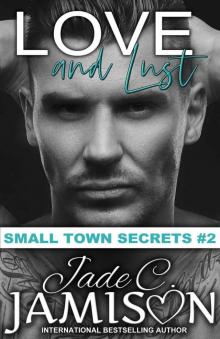 Love and Lust (Small Town Secrets Book 2)
Love and Lust (Small Town Secrets Book 2) Shenanigans (Pretense and Promises Book 2)
Shenanigans (Pretense and Promises Book 2)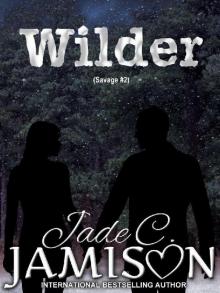 Wilder (Savage #2)
Wilder (Savage #2) Charade (A Fake Fiancée Romance) (Pretense and Promises Book 1)
Charade (A Fake Fiancée Romance) (Pretense and Promises Book 1) Boiling Point (Feverish #1.5)
Boiling Point (Feverish #1.5)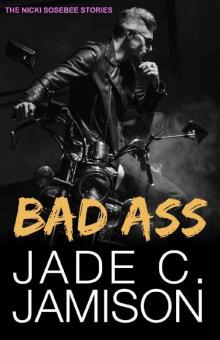 Bad Ass (Nicki Sosebee #14)
Bad Ass (Nicki Sosebee #14)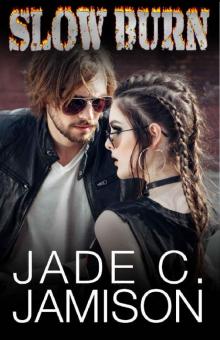 Slow Burn (Feverish #4)
Slow Burn (Feverish #4) Tangled Web
Tangled Web Dirty Boys: Bad Boy Rock Star Romance Box Set
Dirty Boys: Bad Boy Rock Star Romance Box Set Love and Sorrow (Small Town Secrets Book 5)
Love and Sorrow (Small Town Secrets Book 5) On the Rocks
On the Rocks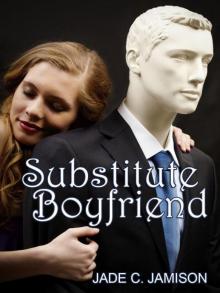 Substitute Boyfriend
Substitute Boyfriend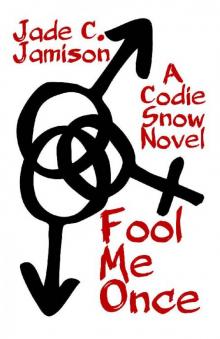 Fool Me Once (Codie Snow #1): A Romantic Suspense Series
Fool Me Once (Codie Snow #1): A Romantic Suspense Series Then Kiss Me
Then Kiss Me Seal All Exits (Tangled Web #3)
Seal All Exits (Tangled Web #3)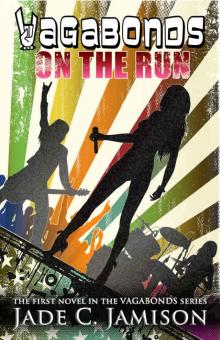 On the Run (Vagabonds #1)
On the Run (Vagabonds #1)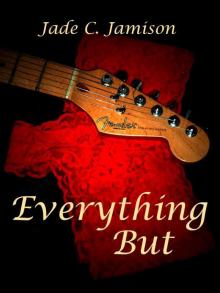 Everything But
Everything But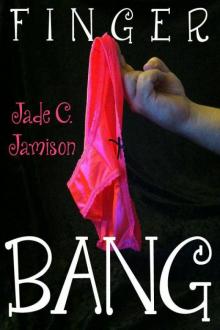 Finger Bang
Finger Bang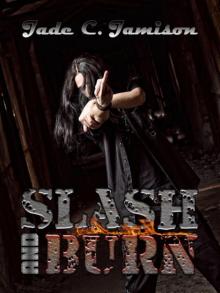 Slash and Burn
Slash and Burn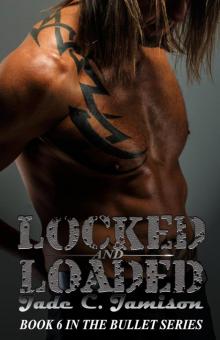 Locked and Loaded (Bullet, #6)
Locked and Loaded (Bullet, #6) Be Careful What You Wish For
Be Careful What You Wish For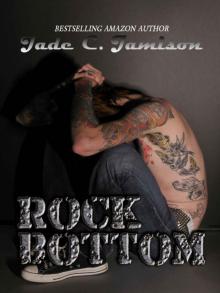 Rock Bottom (Bullet)
Rock Bottom (Bullet) Tangled Web Series Box Set
Tangled Web Series Box Set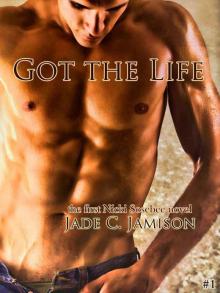 Got the Life (A Nicki Sosebee Novel)
Got the Life (A Nicki Sosebee Novel)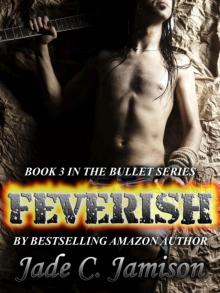 Feverish (Bullet #3)
Feverish (Bullet #3)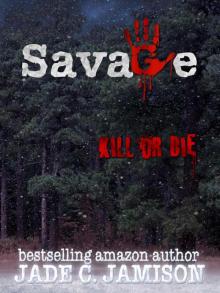 Savage
Savage